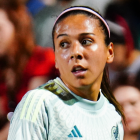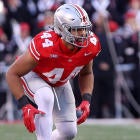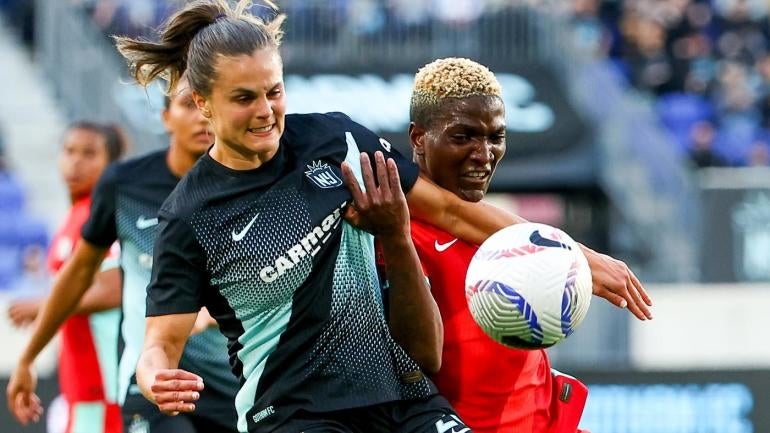
The day before the San Diego Wave opened their 2024 season with a win over NJ/NY Gotham FC in the NWSL Challenge Cup, Alex Morgan and Jaedyn Shaw fielded a seemingly innocuous question: What would it take for their team to improve upon last season's finish, when they won the NWSL Shield and made it to the semifinals of the playoffs?
Morgan said it would require a further embrace of the club's ethos since a winning culture has essentially been in place since the team's first game in 2022. Shaw agreed but had an additional comment.
"That, and staying healthy," she told CBS Sports. "We all gotta stay healthy."
Shaw, and players like her, are not dimply worried that her team's ambitions will be derailed by the bad luck of injuries, because a spell on the sidelines no longer feels like it's up to chance. Women's soccer players have started to notice the increasing demands as the game rapidly evolves, chiefly through the addition of new competitions, raising concerns that their teams -- and the sport as a whole -- are not structured properly for them to successfully bear the load.
Look no further than the schedule Gotham are poised to face in 2024. On Saturday Gotham head to Washington D.C. to face the Spirit in a nationally televised matchup on CBS. The matchup is part of a 26 match regular season. In addition to that Gotham took part in the Challenge Cup and could face three additional matches in the playoffs should they make a second successive run to the NWSL Championship. They could also play anywhere from three to five games in the first edition of the NWSL x Liga MX Femenil Summer Cup and another five to seven games in the inaugural Concacaf W Champions Cup, to which they are expected to be invited as the reigning NWSL champions.
The possibility of a 42-game load, coupled with the plethora of games players will play for their national teams during an Olympics year, is a sizable increase from the 31 Gotham played last season. The increased load is a stark reminder of the inequities of women's sports, to the point that athletes like Morgan have spotlighted disparities in medical resources and travel arrangements and even high-ranking people like Douglas Emhoff, the Second Gentlemen of the United States have highlighted the problem. It's also why Gotham's biggest project this offseason was not actually their stunning free agency sweep in which they landed four U.S. women's national team players, but rather an attempt to ramp up the standards at the club.
"We have put a tremendous amount of work in the offseason to make sure we have the correct systems and processes in place and support to make sure these players are their very best," general manager Yael Averbuch West said at a press conference in January. (Disclosure: Averbuch West is the wife of CBS Sports Golazo Network host Aaron West.) "Making sure we're understanding that, catering to that and then able to get the players back on the field as quickly as possible has been a huge focus of ours. Actually, most of the work I've been doing this offseason has been in the offices with the staff, with the medical staff, with the performance staff, the operations staff, making sure we have the correct structure set up, recovery and all the things that these athletes need to be successful."
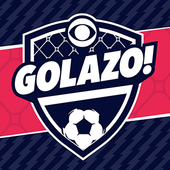
Golazo Starting XI Newsletter
Get your Soccer Fix from Around the Globe
Your ultimate guide to the Beautiful Game as our experts take you beyond the pitch and around the globe with news that matters.
Thanks for signing up!
Keep an eye on your inbox.
Sorry!
There was an error processing your subscription.
Gotham's play protection hiring spree
Gotham's ambitious roster building over the offseason was surpassed by the hires they made coming into 2024, which covers several different categories in caring for the players. New additions to the club's staff include a high-performance director with a staff of around 10 working alongside him, a chef, a dietician, a sports psychologist, a mental skills coach, a head of player care, a head of player safety and security operations and other hospitality staff.
It has dramatically altered the day-to-day experience at Gotham from last year to this year, something Averbuch West said allows players to "just show up and not worry about much else other than performing at their best."
"We share training fields with the New York Red Bulls and around the corner from there, we opened an office and a space that we've built out into a medical area, locker room and gym for the players," as well as a film analysis room, Averbuch West told CBS Sports in a recent interview. "The day, for everyone, begins in this new space where we've set everything up so they can come in, eat breakfast, they can get their treatment there, they have their morning meeting there … After, they can take meetings from there, they can do recovery, sit in the recovery booth, get additional treatment, meet with the coaches."
Don't miss CBS Sports Golazo Network's Morning Footy, now in podcast form! Our crew brings you all the news, views, highlights and laughs you need to follow the Beautiful Game in every corner of the globe, every Monday-Friday all year long.
It is not all that different from the setup at a top-tier men's soccer club, but the reason Gotham needed to make such a transformation is because this structure is fairly new to the women's game, which has historically been underfunded.
"I think a lot of it is more just the amount of time that the two leagues have been around," Julian Haigh, Gotham's new high-performance director, told CBS Sports. "Take MLS as an example, I think they still have a long way to go as well but in terms of, they've had the resources for a lot longer, and like I say, these things just take time to build and to improve."
Haigh joined Gotham in October after a stint with Inter Miami in MLS, but has been in and around the NWSL for the better part of a decade. He has had a front-row seat to the NWSL's quick progression in terms of resources available to players to ensure they are at peak fitness.
"Historically in the NWSL," he said, "it was the classic one-person band. You had one person that would sort of do everything -- the GPS, the strength and conditioning, the return to play [plans] whereas now you'll see more and more across the league, in every club, in every department, that there's now multiple people."
Haigh credited a high level of investment that's being poured into different areas of the women's game, particularly in player fitness, and applauded Gotham's commitment to doing the same.
"Before I joined last year, I certainly had my fair share of questions given Sky Blue's history," he said about the club under its old name when it had a reputation for poor conditions, including no showers at their home stadiums and one-time forcing players to bring their own water to training. "I can't speak highly enough about Yael and the staff here and about their dedication to doing things properly and doing things the right way … Winning is expensive and to do this right is going to take time, effort, money. It doesn't just happen overnight and they've met every single challenge full on and I've been so impressed by it all."
Averbuch West attributed the league-wide updates to the NWSL's unique ownership model. Most of the league's teams are not under the umbrella of an MLS club, Gotham included, which poses its own challenges but also allows the NWSL clubs to build structures that suit their specific needs -- and avoids needing to share with a potentially unwilling partner. The general manager cited the Kansas City Current as a team leading the way in the NWSL after opening an $18 million facility in 2022, the first specifically designed for a team in the league.
"The original model for NWSL, I think when it first started, is that most teams are following the paths of men's teams and sharing with men's facilities and that's great because the infrastructure's already there," she said. "I think there is a new vision for how teams can succeed independently of that and to have your own spaces, your own facilities, your own brand, all of it in-house just for a women's club."
Challenges persist
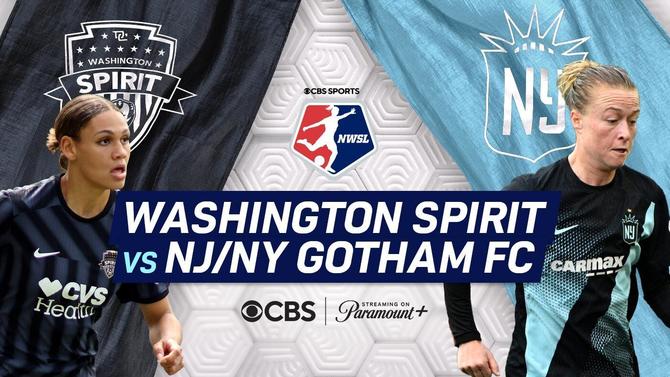
The increased resources are not just needed to reduce soccer's inequities, but because a worrying trend is emerging in the women's game. According to a report published in December by FIFPRO, the organization representing all soccer players, more matches, less rest and longer travel led to an increase in anterior cruciate ligament tears for women's soccer players. It has led several vocal figures in the game to criticize the load on players, including Gotham head coach Juan Carlos Amoros. He spent much of the last few months criticizing the timing of the Concacaf W Gold Cup, which took place weeks before the NWSL season started and also expressed his disdain after Midge Purce tore her ACL in their regular season opener at the Portland Thorns last month.
Women's soccer is currently caught in a balancing act amidst the rise in investment and attention. While adding more matches to the calendar would help meet increased demand and help to professionalize the women's game in a way that resembles its men's counterpart, those changes might be happening too fast.
"We, as players, understand people want to see us play. If fans can have a chance to watch us play more than the [26] games that are scheduled," Gotham's Crystal Dunn said last month. "I think players also want to be protected … I am always going to be on the side of supporting the players and making sure it is done in such and protected way where people can walk out of that moment and still be able to have enough in the tank to give to the season when it starts back up."
For Haigh and the staff around him, the job is to mitigate as much risk as possible. He argues the increased demand on players is an opportunity to push women's soccer in the right direction as it pertains to player care.
"We have our entire season planned, from start to finish and as we receive more information about these games, we put them in and say, 'How does this change our rhythm?,'" he said. "For us, this is just part of the job … I certainly don't look at it as a negative. I think it's an exciting opportunity to really keep pushing standards and keep pushing the level of the professionalism of the league."
One particular sticking point continues to be travel arrangements. Dunn brutally acknowledged that "the reality is, we're not flying on private jets. We're literally flying commercial," a commonality in women's sports but not in men's sports. Gotham are working on solutions to those problems, including extensive plans about player travel for club and country.
"We have a whole document to our internationals where we look at flight times, airports, number of changes, number of time zone changes," he said. "All of these pieces are then factored into the players recovery plans. We have travel kits prepared for those that are traveling back and forth from Europe or over multiple time zones to help them with jet lag."
Averbuch West added that the NWSL has several avenues for people around the league to discuss issues around player fitness as they try to strike the balancing act.
"The league has been very open to conversation," she said. "We connect frequently with the [NWSL] sporting director [Tatjana Haenni] and we have these calls -- I'm on a technical task force and we have calls with the team GMs. I know the head coaches have calls, business staff have calls so there are a lot of calls and forums for conversations like this where the league presents, we can ask questions. There's definitely a good avenue and a lot of conversations at this point."















